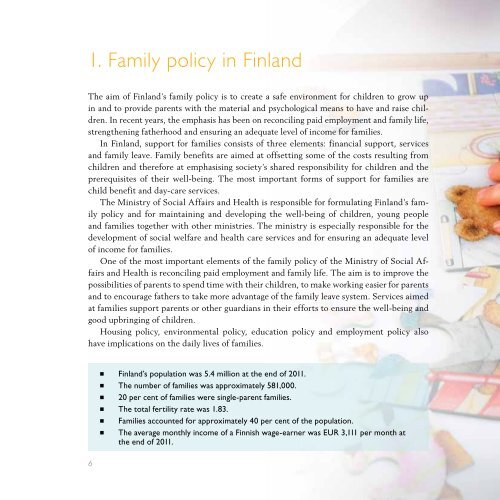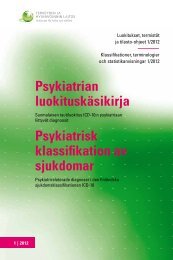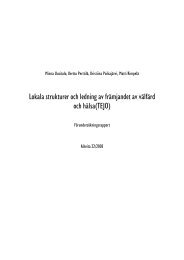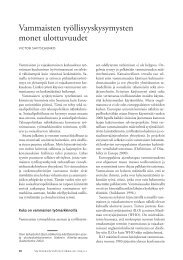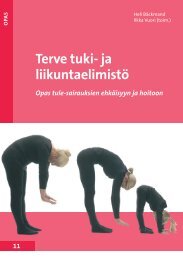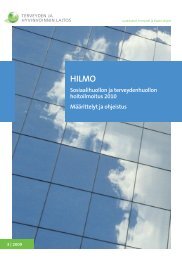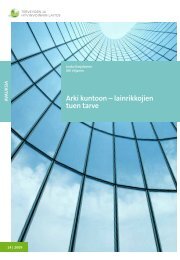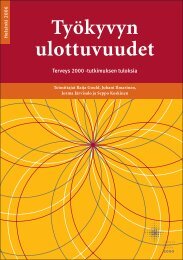CHILD AND FAMILY POLICY IN FINLAND
CHILD AND FAMILY POLICY IN FINLAND
CHILD AND FAMILY POLICY IN FINLAND
Create successful ePaper yourself
Turn your PDF publications into a flip-book with our unique Google optimized e-Paper software.
1. Family policy in Finland<br />
The aim of Finland’s family policy is to create a safe environment for children to grow up<br />
in and to provide parents with the material and psychological means to have and raise children.<br />
In recent years, the emphasis has been on reconciling paid employment and family life,<br />
strengthening fatherhood and ensuring an adequate level of income for families.<br />
In Finland, support for families consists of three elements: financial support, services<br />
and family leave. Family benefits are aimed at offsetting some of the costs resulting from<br />
children and therefore at emphasising society’s shared responsibility for children and the<br />
prerequisites of their well-being. The most important forms of support for families are<br />
child benefit and day-care services.<br />
The Ministry of Social Affairs and Health is responsible for formulating Finland’s family<br />
policy and for maintaining and developing the well-being of children, young people<br />
and families together with other ministries. The ministry is especially responsible for the<br />
development of social welfare and health care services and for ensuring an adequate level<br />
of income for families.<br />
One of the most important elements of the family policy of the Ministry of Social Affairs<br />
and Health is reconciling paid employment and family life. The aim is to improve the<br />
possibilities of parents to spend time with their children, to make working easier for parents<br />
and to encourage fathers to take more advantage of the family leave system. Services aimed<br />
at families support parents or other guardians in their efforts to ensure the well-being and<br />
good upbringing of children.<br />
Housing policy, environmental policy, education policy and employment policy also<br />
have implications on the daily lives of families.<br />
6<br />
■ Finland’s population was 5.4 million at the end of 2011.<br />
■ The number of families was approximately 581,000.<br />
■ 20 per cent of families were single-parent families.<br />
■ The total fertility rate was 1.83.<br />
■ Families accounted for approximately 40 per cent of the population.<br />
■ The average monthly income of a Finnish wage-earner was EUR 3,111 per month at<br />
the end of 2011.


